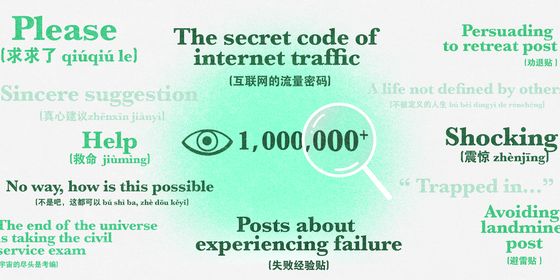Having presence is sometimes a bad thing
There is an unwritten rule in Chinese: you have to be very careful when you say someone “has a good presence (有气质 yǒu qìzhì)”. Though it definitely sounds like a compliment, it’s a dig, suggesting that the subject doesn’t have a good appearance so you have to focus on their “presence”. Think of the faint praise: “Well, she has a great personality.”
In short: you’re ugly. There’s no exact equivalent for the already abstract word 气质 , which can be translated as presence, temperament, disposition, manners, or charisma depending on context. Recently you might have found that you can’t close a browser in China without seeing photos captioned, “Just feel my presence (主要看气质 zhǔyào kàn qìzhì).”
Though the phrase didn’t appear until very late last year, it was listed as one of the top ten popular online buzzwords by Excessive Wording magazine. Its origin comes from a Weibo post of a Taiwan pop singer, Cyndi Wang, who released a photo for her new album of her eating a hamburger. Netizens, as they so often are, were unkind. In the spirit of things, Wang replied, “just feel my presence.”
Few were as interested in Wang’s album as they were in this new phrase. A competition was launched on Weibo, saying, “Please post a picture themed ‘just feel the presence’. If you don’t dare do it, send me a 5.21 RMB hongbao then.”
Obviously the most dangerous thing about this phrase is that it has given selfie addicts yet another excuse to bombard the planet with pictures of their dumb faces. This line accompanies the photos of every preening selfie addict in the nation.
Self-mockery is all the rage on social media—well, mockery of anything—so when that photo doesn’t work out, you can always just post: “Don’t mind my weird looks, just feel my presence.” Of course, the hoi polloi of internet society quickly joined the fray; whether performing, doing exercise, or just hanging out with friends, they displayed their “presence” in full view. And it wouldn’t be the internet if people didn’t get their pets involved. You can find pictures of puppies with luxury glasses and cats in suits stressing their “presence”.
Presumably, you can find people using the non-sarcastic use of presence—dolled up in exquisite make up and posing carefully while still begging for people to notice their inner beauty. As you might imagine, folks tend to dish out a lot of online rage at these vainglorious show-offs. The phrase has taken on an all-purpose insult facade. You might hear two young ladies discussing a film. The first would say, “我真不敢相信你居然去看了这部烂片儿 ! 你是去看气质的吗?” (Wǒ zhēn bùgǎn xiāngxìn nǐ jùrán qù kànle zhè bù lànpiānr! Nǐ shì qù kàn qìzhì de ma?) or “I can’t believe that you went to see such a terrible movie! Did you go to feel the presence?” But the other girl isn’t going to put up with that and might bite back with, “你应该庆幸现在是一个看气质的社会!” (Nǐ yīnggāi qìngxìng xiànzài shì yē gè kàn qìzhì de shèhuì! ) or “You should feel lucky that we have such a presence-feeling society!”
However, you might want to keep in mind that this was not always the case, that online faux vanity was once not the bedrock of civilization. People who grew up in an age without the internet might praise someone’s presence instead of their good looks to show that they are not shallow. In this case, maybe take a step back and realize that having a good presence actually is more important than a pretty face.












